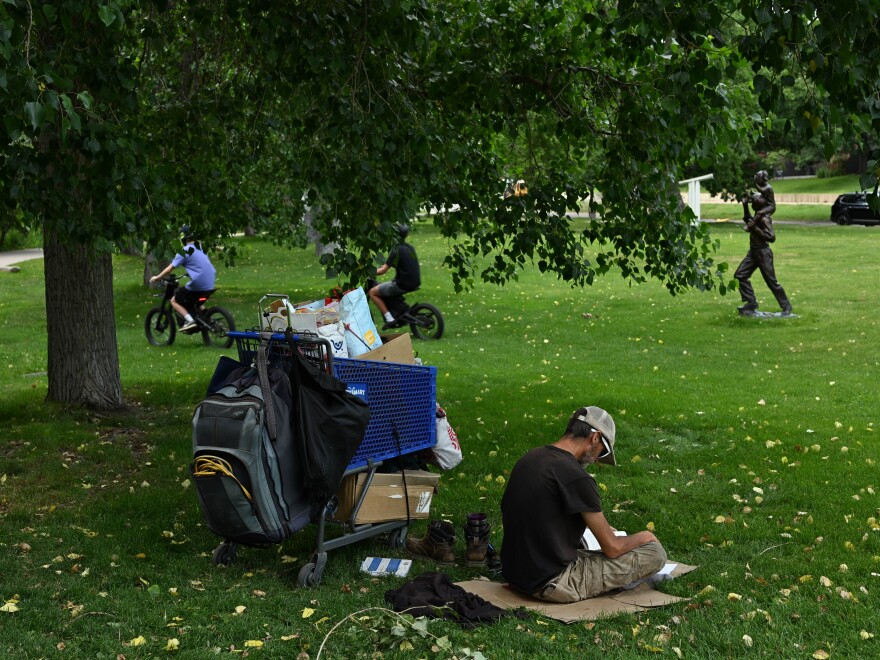Updated @ 12:18 PM EDT on July 25, 2025
Because so many people value trees for their shade, greenery, and beauty, when they are purposefully felled, fury is frequently the response.
These kinds of situations happen more often than most people realize. On the island of Nantucket in Massachusetts, a man was recently charged with a crime for removing trees from his neighbors’ property in order to enhance the views from his own. Then he put the mansion up for sale for around $10 million.
This type of infraction is known as “timber trespass.”
Israel Piedra, a lawyer from New Hampshire, told NPR’s Morning Edition that it’s his area of expertise.
According to Piedra, examples of timber trespassing are “very common,” but the Nantucket event and a related case in Maine, where a wealthy couple poisoned another wealthy neighbor’s trees to improve their view of a bay, reflect a “level of egregiousness” that is more uncommon, he said.
Negligence or possible recklessness, such as failing to perform a property survey prior to tree removal, is a common element in wood trespass cases.
Piedra reported that he has about two dozen active timber trespass cases. “Generally, it has to do with a neighbor not knowing where the property line is, or perhaps even potentially knowing that [a tree] is probably on their neighbor’s property, but plowing ahead and sticking their head in the sand and cutting down the trees anyway,” Piedra said.
This is called “willfully intentionality,” according to Piedra, when people purposefully take down their neighbors’ trees without their consent.
“My clients almost always think that it’s willful,” he stated, “but it’s very difficult to prove.”
According to Piedra, criminal prosecutions in forest trespass cases are rare since prosecutors must demonstrate intent, and those who are accused of unlawfully felling trees frequently argue that they believed they had authorization to do so or that the tree-cutting incident was an accident.
Because the defendant in the Nantucket case felled so many trees belonging to his neighbors, some of which were not on his property line, “it was very difficult to impossible for him to argue that it was an accident,” Piedra stated, leading to the filing of criminal charges.
Rules governing property insurance may also make matters more difficult. According to Piedra, certain homeowner insurance plans would pay compensation to homeowners whose trees were inadvertently felled, but not those that were harmed on purpose or taken away without consent.
Consequently, it “isn’t to [the victim’s] benefit to allege or prove willfulness, because then the neighbor’s insurance coverage is not going to cover them,” added Piedra, “and so it becomes advantageous to my clients to concede that this was negligent and not intentional.”
As a result, civil fines or settlements are frequently reached in numerous cases. For instance, in the tree-poisoning case in Maine, the defendants maintained their harbor view while paying a fine exceeding $1.5 million.
According to Piedro, many people who had their trees chopped down without their consent are content with monetary compensation, particularly if it allows them to avoid going to court and receive tens of thousands of euros for a small number of trees. He continued that “a lot of folks do feel like no amount of money can put back the trees that were lost.”
“Call a lawyer,” he advised anyone who believes they have a timber trespass case. Don’t forget to record everything. Make sure you truly understand the location of your property line, which typically entails obtaining a survey. Regretfully, it is your responsibility to provide proof that someone entered your property, and your impromptu estimates are unlikely to be sufficient from a legal standpoint.
Piedra stated that the public is often outraged by these cases, especially when they involve wealthy warring neighbors, because “people are taken aback by the disrespect that someone would show by thinking they had the right to go onto someone’s property and destroy a living thing like a tree that a lot of people have emotional attachments to.”
“They had a lovely tree one day. It’s demolished the following day,” he continued. “And there’s no way to get that back.”
Majd Al-Waheidi edited the radio interview for the internet, while Barry Gordemer produced it.
Copyright 2025 NPR






